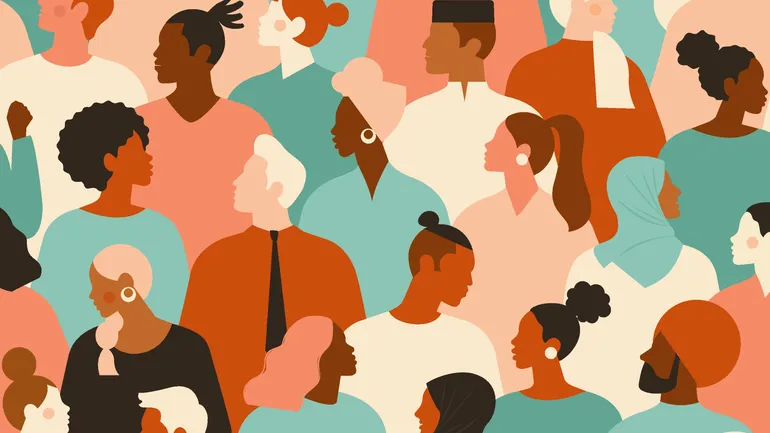
This audio is auto-generated. Please let us know if you have feedback.
Diversity, equity and inclusion policies going into 2025 are up for considerable review by CFOs who are risk-cognizant. Corporate America’s recent pullback on DEI policies — many of which involved race-based hiring quotas, accusations of reverse racism and more exclusion than inclusion — is only the beginning of what’s to come and is the result of misguided onsets of corporate DEI, the politicization of the workplace and executive ignorance, according to multiple sources interviewed by CFO.com.
Those who have made careers in taking on the DEI industrial complex, as well as legal labor law experts, DEI advocates and direct advisors on DEI to CFOs agree: Some DEI policies and initiatives have politicized companies of all sizes and industries and have become hyperfocused on race, sexual orientation and gender while being highly label-dependent, exclusive and, in some cases, illegal. However, other policies — like expanding applicant pools, creating nonexclusive employee resource groups to talk about underrepresented communities and increasing awareness of unconscious bias — stem from DEI initiatives and are required by law for companies to provide training on and discuss.
As CFOs prepare for policy changes from the incoming Trump administration, they are advised to review and, if necessary, redefine or eliminate elements of their DEI policies. Legal repercussions around violations of Title VII of the Civil Rights Act of 1964 are set to boil over as a potentially precedent-setting Supreme Court case on reverse discrimination is set to be heard in June. These factors make 2025 a pivotal time for corporate DEI policies to face legal scrutiny, hence the large-scale pullback by many already.
The clock is ticking for CFOs, whose responsibilities in risk management are increasing, to be proactive in addressing the issue and making sure their companies are not discussing race, color, religion, sex, national origin or conducting any other potentially discriminatory actions by the form of race or gender-based hiring or promotion quotas, and in other ways which efforts to be diverse and inclusive for the sake of equity can yield the opposite result.
How we got here
America’s largest companies have now begun to distance themselves from DEI policies, and all indicators suggest this is a growing trend. Robby Starbuck, who is responsible for a significant portion of the DEI pushback across corporate America, says the origins of the DEI push began in 2020.
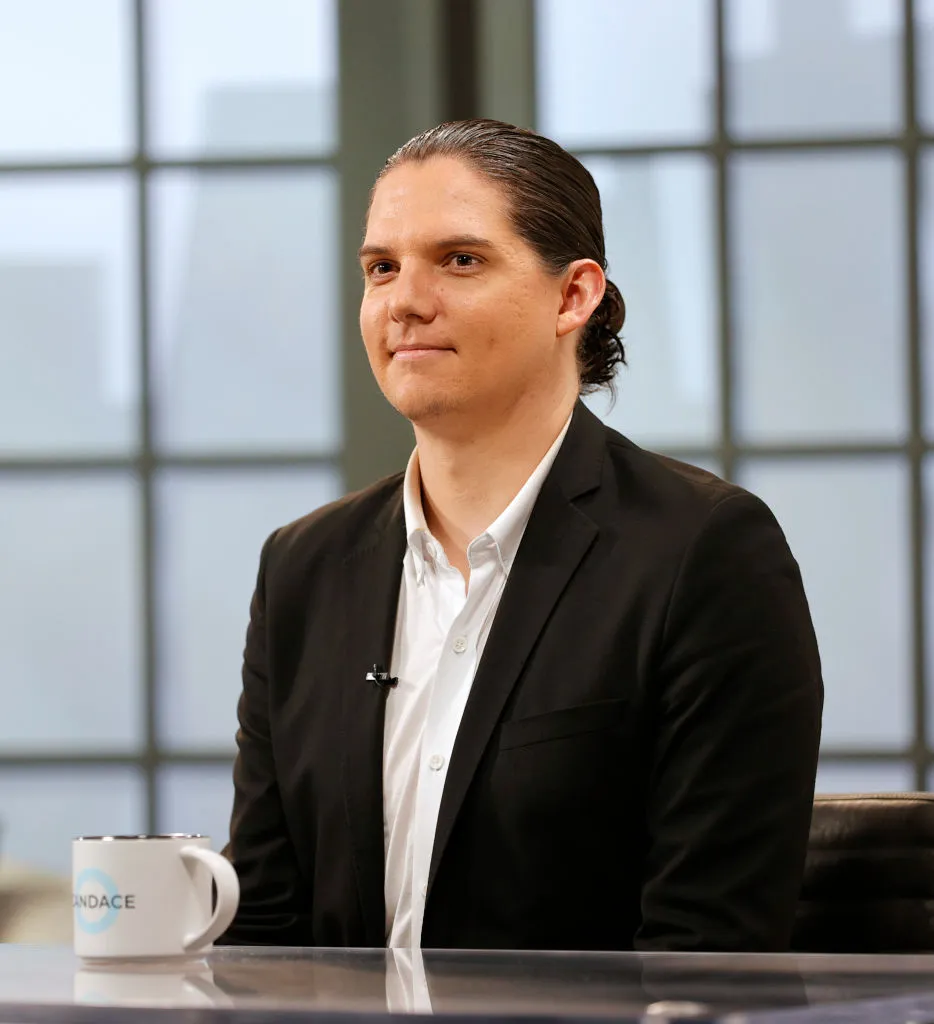
Robby Starbuck, filmmaker and anti-DEI activist
Jason Kempin via Getty Images
“Many corporate leaders and CEOs were held hostage by this idea that they and their companies may be viewed as racist,” Starbuck said. “So the idea was to create DEI programs so they wouldn’t appear as racist, but what happened was these groups gave many activists free rein to go about and prove that the company wasn’t racist, so these programs ran wild.”
Though Starbuck cites the timeframe around the death of George Floyd and the subsequent response being “a massive shift to the left” in America’s DEI efforts, the timeline for the pushback can be identified sooner than the beginning of Starbuck’s viral efforts. According to Julie Levinson Werner, who serves as partner and vice chair of employment at Lowenstein Sandler and has written extensively about DEI in the workplace, her description was in line with Starbuck’s timeframe at the onset but added the pushback began in June 2023.
“We saw the shift in DEI most notably through the Supreme Court’s ruling involving Harvard University and the University of North Carolina’s admissions and the reversal of affirmative action in higher education,” Werner said. “I think this was a key turning point in the pushback, which has continued to grow.”
For those who have built organizations around guidance on DEI policies and creating equitable workplaces, they too say DEI’s initial onset did not involve much meritocracy or review of qualifications. Sheryl Daija, CEO of BRIDGE, a DEI and action-oriented, member-driven 501c6 trade group for the global marketing industry, believes the initial processes of filling DEI positions across corporate America were counter-intuitive to the intentions of the initiatives.
“What ended up happening was there was a really good intention of standing with minority communities, but it created problems because people who were not DEI practitioners were put in the role of DEI practitioners,” Daija said. “What was happening was companies were saying, ‘Oh, let’s take this Black person in marketing and make them a DEI leader,’ but then never investing or training or upskilling them in DEI. Many [organizations] didn’t realize that just being Black, Hispanic or LGBT doesn’t qualify someone to be a DEI practitioner.”
Daija, like Starbuck, says many organizations initially put people in DEI leadership based on their race and gender, which has resulted in problems that have now come to fruition. Though both would admit they are on the opposite side of the argument for DEI, Starbuck’s comments on how DEI teams were initially built strongly resonate with Daija’s take on the predecessor to the narrative being a large-scale lack of upskilling or defining of what legal, ethical and moral DEI concepts and statements are. “[DEI leaders] at many companies hired their friends early on, and these programs became ‘Trojan horses’ of left-wing political activism at many organizations,” said Starbuck.
Removing labels and quotas
Although the efforts are rooted in initiatives to promote conversations about bias and underrepresented communities, Admira Adovic, founder and fractional CFO at Kare Accounting and a board member on the CFO Leadership Council’s DEI board, says the conversations around DEI during her experience on the board often became too focused on labeling people based on their race, religion or gender. She said it became such an occurrence that, as an immigrant to the United States originally from Montenegro, she realized the idea of labeling people has become a phenomenon rampant in business that is increasingly common in America.
“It got to the point where I got tired of it,” Adovic said when talking about the conversations around labels during her CFOLC DEI board meetings. “Today it’s the Indians, tomorrow it’s the Muslims, then the Christians, then the [LGBT community]. I had to step up and say enough, and shift the focus from a label perspective to a human perspective.”
Sweeping statements based on quotas, like United Airlines’ commitment to making half of their new pilots in training programs be women or people of color, Disney executives saying candidates were eliminated due to lack of diversity and IBM’s CEO saying hiring decisions needed to be made with race considerations in mind are just a few examples of companies that may be in jeopardy of legal action because of efforts made in the name of DEI.
Even the public sector’s DEI initiatives, like those of Boston Mayor Michelle Wu, Chicago Mayor Brandon Johnson and his aides and New York City Mayor Eric Adams have seen significant pushback from constituents on decisions made regarding race and gender. These notions not only create “problematic” policies but result in the dilution of potentially legitimate discrimination cases.
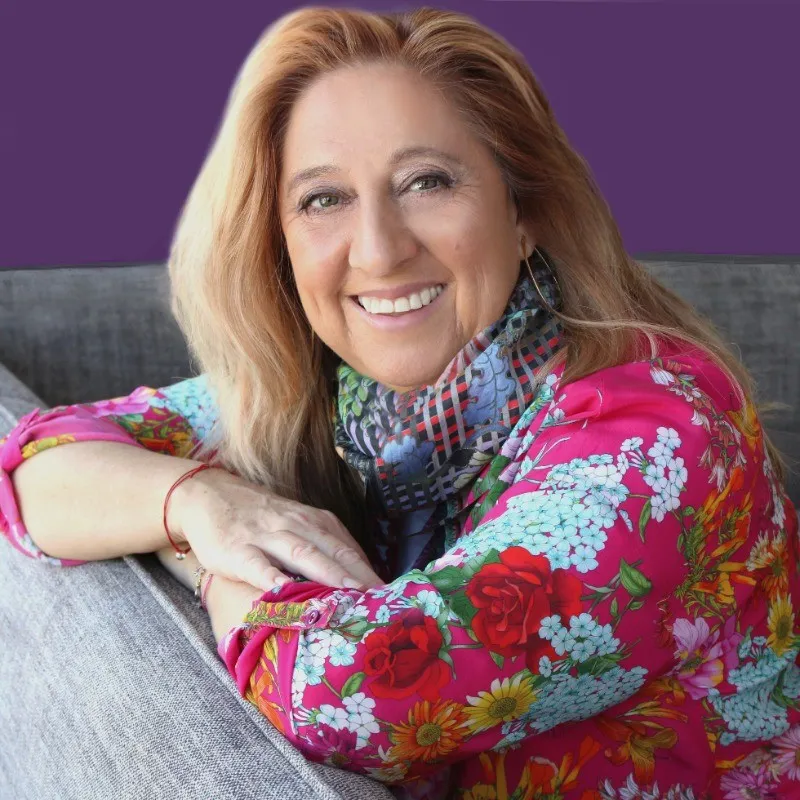
Sheryl Daija, founder and CEO, BRIDGE
Permission granted by Sheryl Daija
Daija said quota-based policies and statements citing quotas are misguided, but added she isn’t aware of any that have said they aim to exclude. “Sweeping statements became a little bit problematic because it makes the intentions behind the effort questionable, and these types of statements have gotten out of hand,” Daija said. “I think it’s up to all of us to include everyone in the mix, including white men, because inclusion means everybody. It does not mean no white men, but I think this is partly a position that white men took to say that they’ve been excluded. I don’t know if there are any DEI policies that have [explicitly] excluded white men.”
Though he didn’t mention explicit policies, Starbuck did mention the possible origins of practices like labeling likely being in DEI training, which he says is mostly citing literature that is not only racist in its own right but anti-capitalist.
“The number one consistent resource in the DEI training in the hundreds we looked at across the country is Ibram Kendi’s ‘How to Be an Antiracist,’” Starbuck said. “The explicit message of this book is that the only way to be anti-racist is to be anti-capitalist, and you’ve got to appreciate the irony of multinational corporations encouraging their employees to read a book that says opposing capitalism is a means to be anti-racist.”
Kendi’s book was also subject to a study recently done by Network Contagion Research Institute and Rutgers University that suggested interaction with DEI training literature was causing employees to exhibit more bias than those who were interacting with literature about mundane, non-race-inspired subjects.
Starbuck said when he tells executives these ideas are being taught in their corporate diversity training, most are surprised.
“The number one thing we hear from executives when we’ve approached them about specific issues is them saying, ‘I have no idea.’ That is the number one line we hear,” he said. “This should be maddening [for executives] if you think about it. These are the CEOs, CMOs, CFOs, and they have no idea about certain things their company is doing.”
Leadership’s lack of awareness can not only result in politicized DEI policies but can raise questions about what an illegal DEI policy looks like. From the legal perspective, Werner stressed that when asked how to implement a legal DEI policy, she tells her clients to focus on what the sources of applicant pools look like, not the applicants themselves.
“When clients have asked me how to implement DEI, I have encouraged them to think about how they can expand their applicant base and their pool of job candidates,” she said. “Though the focus should be hiring the best person for the job, regardless of any characteristics pertaining to gender or race, companies should strive to broaden their applicant pool with a diverse population of candidates. I don’t believe there is anything wrong with that.”
Inclusivity, reverse racism and unintentional discrimination
In discussing the complexities of workplace inclusivity and diversity initiatives, Werner acknowledged the balance between fostering opportunities for underrepresented groups and addressing perceptions of exclusion.
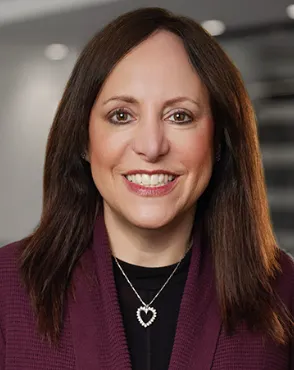
Julie Levinson Werner, partner and vice chair of employment, Lowenstein Sandler
Permission granted by Julia Levinson Werner
“I am not a social scientist, I am a lawyer, but I think there are obviously characteristics and traits that people look for when they are hiring for certain roles, and I think for whatever reason, some opportunities haven’t been provided to everyone in an inclusive way,” Werner said. “I think the idea here is that there is nothing wrong or illegal about being inclusive. The problem is when the emphasis on diversity leads people to make stereotypes because some argue that the push toward diversity yields less inclusivity toward others. There is now a pushback where white men, for example, claim to feel excluded in some organizations.”
However this pushback on DEI from white men, according to Daija, does not come solely from a desire for meritocracy, but a “conservative agenda” that fears the consequences of white men losing control of influence and power in the workplace.
“There is a fear internally among white men that their power will be taken away, either from Black men or Black women, Hispanics, Asians — there is a fear there,” Daija said. “[But], I think DEI efforts early on made a fundamental mistake in not including white men in the solution, the same way Black people can’t solve racism alone.”
Though she says implicit bias among all white men is certain, Daija stressed the push to include people from diverse backgrounds comes from efforts to help drive equity in what she deems as unfair and outcomes that imply inequities.
“Nobody is trying to take away any influence, we are trying to add,” said Daija. “We have to be honest with ourselves and say white guys aren’t the only qualified people in this country, and I think inequities in places like executives in the Fortune 500 companies is a problem. What we have there isn’t meritocracy, that’s inequality.”
When asked about the idea of the viability of pure meritocracy in the hiring process, Daija dismissed the possibility of its realism. “It just doesn’t work like that. You just have to be honest with yourself and say there is implicit bias in hiring practices, it’s just fact.”
Unintentional discrimination practices in the name of providing opportunities and making up for perceptions of previous bias emerged in an experience for Adovic. Though she said she believes it’s important to make people feel valued “not from a label perspective, but as human beings,” she had a firsthand experience that tested this philosophy.

Admira Adovic, founder and fractional CFO, Kare Accounting
Permission granted by Admira Adovic
She shared an anecdote of near-discrimination that occurred during a time in a previous financial leadership role when she was splitting corporate responsibilities with her COO while the company’s CEO was on vacation. When her fellow executive said they should alter a corporate policy in the name of DEI, Adovic felt the need to voice the human perspective to not only avoid labeling but to avoid unethically and illegally offering preferential treatment.
“We had an African American employee who was fairly new, and she had a death in the family that required her to go to Africa for the services,” Adovic said. “The COO came to me and said, ‘We need to give her two weeks.’ And when I told them that the bereavement policy was five days, just like it was for me when I had to go home to Montenegro for the services of my [late] father, they said that we needed to make the policy ‘friendlier’ for her because she was from an underrepresented group.”
Adovic, though sympathetic to her employee’s personal concern, put her foot down on extending a company policy based on race.
“I told the COO that we need to treat this employee like we would anyone else and that if we wanted to extend the policy to two weeks for everyone, I would not be opposed to that, but it would have to be in writing and submitted as a request to human resources,” she said.
The COO ended up choosing to keep the bereavement policy the same and only extend the current policy’s five days to the employee.
“People don’t want to be treated differently because of the label they are given,” Adovic said. “They want to feel included and treated the same just like everyone else. Even nowadays, with young kids, everyone is a winner and given preference. We’re teaching people they can’t level up, they can’t get better if they try harder, while also saying let’s treat underrepresented people [favorably]. No one wants to get treated differently, but many companies are scared of being sued.”
Legally preparing
Both legal experts and DEI advocates, as well as Starbuck, advise CFOs and their teams to not only conduct audits of their internal conversations around race, gender and DEI practices but to retrain and refresh all of those who make hiring decisions on the considerations they aren’t legally allowed to make as per Title VII of the Civil Rights Act of 1964.
Starbuck advises CFOs who find their companies are violating federal labor law in the name of DEI to come forward, and that CFOs should do a deep dive into human resources and hiring managers’ company emails to see how they are talking about race and gender.
“Be brave, be a whistleblower,” he said. “Be a good person that does the right thing so your kids aren’t subjected to the whims of these racist, hateful ideologies [in the workplace].”
“I am not going to pretend this is easy, but every whistleblower that has come forward to us still has their job, and it’s critically important to future generations that we stop this now because, at some point, I think great men and women have to take a stand and say no to these policies,” Starbuck continued. “The tide has now shifted where business leaders can stand up against these ideas more today than in previous years.”
Starbuck warned that his discussions with members of the future Trump administration lead him to believe that legal repercussions against these policies are certain. Not only are his efforts causing companies to abandon the corporate equality index metrics in their business, a metric that CFOs felt pressure to adhere to, but he says companies who made sexist or racist statements in the name of DEI shouldn’t be surprised if a lawsuit comes their way in the next few years.
“I think [business leaders] are overlooking that the [Department of Justice] is going to be looking into the illegal discriminatory practices around DEI, and I can almost guarantee, based upon discussions I’ve had with people in the Trump administration, that this is something there needs to be reasonable discussions and [possibly] even fear about,” he said.
When advising her clients, Werner said she stresses the importance of a proactive approach to assessing labor risk in DEI policies and to make sure the company does everything from a sound legal perspective, as well as provides the employees with the proper training needed, so decision-makers can make both ethical and legal hiring decisions based upon merit.
“I would advise a CFO to make sure they factually understand their employment practices and to consult with knowledgeable legal counsel to make sure they understand the law,” she said. “I think CFOs should get a handle on what their DEI policies are, what their internal documents say and how their policies are being communicated in places like the employee handbook and communications around company programs and events, and be mindful of what is being communicated in securities filings, on company social media and company websites.”
Other legal experts agree with Werner but provided more context in the wake of the incoming Trump administration’s perceived intentions. Andrew Turnbull, co-chair of global employment and labor practice at Morrison Foerster, says he “certainly” expects a legal pushback on DEI in the months and years to come.
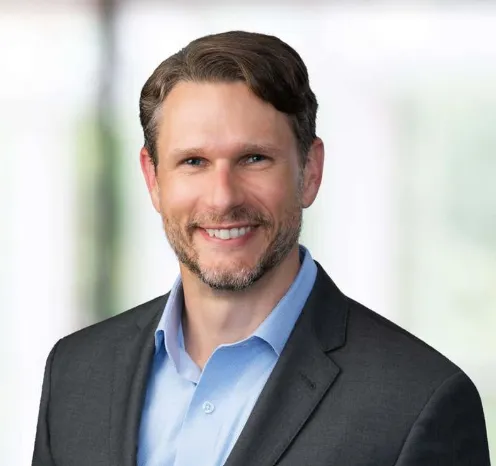
Andrew Turnbull, co-chair of global employment and labor practice at Morrison Foerster
Permission granted by Morrison Foerster
“In the upcoming Trump administration, we will probably see legal and enforcement changes around this,” he said. “Under his first administration, [then-President Trump] issued an executive order that banned critical race training, which could have some stuff you wouldn’t see in most normal diversity ratings, but there are certain components that could overlap with unconscious bias training that is more common in what you see nowadays.”
Turnbull also anticipates a change in policy from the Equal Employment Opportunity Commission. He said although the organization has previously encouraged DEI practices, the new administration may cause them to flip and pursue violations of labor law and cases of reverse discrimination.
“The EEOC does occasionally bring reverse discrimination complaints, but they also typically promote diversity policies and encourage companies to do that, and I think you will shy away from that as a guidance perspective and you may see them bring some enforcement activity against companies who have unlawful DEI programs,” he said.
Turnbull, like Werner and Starbuck, agrees that CFOs should take action upon discovery of wrongdoing. “Each situation will be different, but if a CFO sees something that they believe is unlawful, they need to take action,” he said. “Whether it’s opening an investigation or putting a stop to it, they need to know what makes up their anti-discrimination policies. It doesn’t matter what [race or gender] you are, companies should want to protect all of their employees, no matter who they are, from unfair practices.”
For CFOs to be most proactive in their legal evaluation of their DEI policies, a strong relationship with human resources must be cultivated. Not only does Adovic make this clear, but she says by establishing company non-negotiables, strong corporate values and an understanding of labor law in those making hiring decisions, CFOs can create policies that create equal opportunities based on merit that are both ethically and legally sound.
“If a CFO finds wrongdoings, it’s an easy conversation,” Adovic said. “Pull the human resources person in or whoever is making hiring decisions based on race or gender, and rehash your company values and your predetermined non-negotiables,” she said.
“Your values must live and breathe in the organization, and your people should not be surprised to hear them because you should be referencing your values every day, not just in meetings, or else you are setting yourself up for failure while putting yourself in a position of being unable to identify people who might not be a good fit for your organization before it’s too late.”

